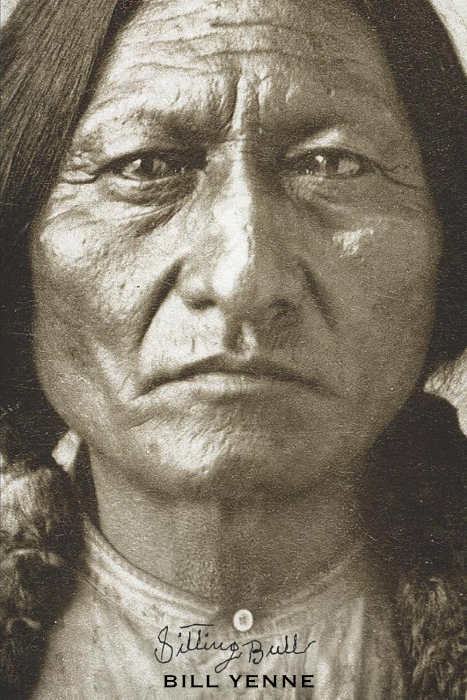 Sitting Bull Sitting Bull
Bill Yenne
Narrated by Bill Fike
Available from Audible
Book published by Westholme Publishing
Sitting Bull’s name is still the best known of any American Indian leader, but his life and legacy remain shrouded with misinformation and half-truths. Sitting Bull’s life spanned the entire clash of cultures and ultimate destruction of the Plains Indian way of life. He was a powerful leader and a respected shaman, but neither fully captures the enigma of Sitting Bull. He was a good friend of Buffalo Bill and skillful negotiator with the American government, yet erroneously credited with both murdering Custer at the Little Big Horn and with being the chief instigator of the Ghost Dance movement. The reality of his life, as Bill Yenne reveals in his absorbing new portrait, Sitting Bull, is far more intricate and compelling. Tracing Sitting Bull’s history from a headstrong youth and his first contact with encroaching settlers, through his ascension as the spiritual and military leader of the Lakota, friendship with a Swiss-American widow from New York, and death at the hands of the Indian police on the eve of the massacre at Wounded Knee, Yenne scoured rare contemporary records and consulted Sitting Bull’s own “Hieroglyphic Autobiography” in the course of his research. While Sitting Bull was the leading figure of Plains Indian resistance his message, as Yenne explains, was of self-reliance, not violence. At the Battle of the Little Bighorn, Sitting Bull was not confronting Custer as popular myth would have it, but riding through the Lakota camp making sure the most defenseless of his tribe—the children—were safe. In Sitting Bull we find a man who, in the face of an uncertain future, helped ensure the survival of his people.
Bill Yenne is author of many books, including Indian Wars: The Campaign for the American West. He was also a consultant for the History Channel’s “Command Decision: The Battle of the Little Bighorn.”
REVIEWS:
“Yenne’s book excels as a study of leadership.”
—The New Yorker “Combining sound historiography and singular eloquence, versatile American historian Yenne provides a biography of the great Lakota leader in which care is taken to describe sources (a great deal of them are in oral tradition) and to achieve balance with compassion. A warrior as a young man, Sitting Bull was later more of a shaman and tribal elder. During the Little Big Horn, he was in camp making sure the children were safely concealed. He was a firm friend of Buffalo Bill Cody, who made him a celebrity, and was shot to death while being arrested by Indian policemen during the Ghost Dance rebellion, shortly before Wounded Knee. Yenne hails from Lakota territory in Montana and uses his familiarity with it to complement the richness of data in the narrative with an extraordinary sense of place. Indispensible to Native American studies.”
—Booklist “In this stirring biography, Yenne captures the extraordinary life of Plains Indian leader Sitting Bull while providing new insight into the nomadic culture of the Lakota. Born in 1831, Sitting Bull witnessed the downfall of his people’s way of life nearly from start to finish—despite some clashes, “the Lakota supremacy on the northern Plains remained essentially unchallenged” until the 1850s. Yenne describes how hostilities increased after the 1849 California gold rush, and were exacerbated by the opening of the railroad; conflicts and broken treaties would harden many Lakota against the colonists, including Sitting Bull. A high point is Yenne’s account of how celebrity journalism created the myth of Custer’s Last Stand, casting the general as hero and Sitting Bull as the villain, and how the US cavalry’s defeat was used to justify forcing Indians off their land and onto reservations. The last half of the book describes Sitting Bull’s unsuccessful attempts to defend the Lakota’s land and culture through negotiation and peaceful resistance, alongside a dismal record of government betrayal and neglect. In this remarkable, tragic portrait, Sitting Bull emerges as a thoughtful, passionate and very human figure.”
—Publisher Weekly “This is much more than the usual romantic Native American biography or sympathetic history. Instead, Bill Yenne transcends the customary Eurocentric filter and debunks the myths and romantic distortions, combining thorough literary research with contemporary Native American sources to penetrate the complex and enigmatic character of America’s best-known Indian hero. And he does it all in a refreshing, engaging style.”
—Bill Yellowtail, Katz Endowed Chair in Native American Studies, Montana State University
|

